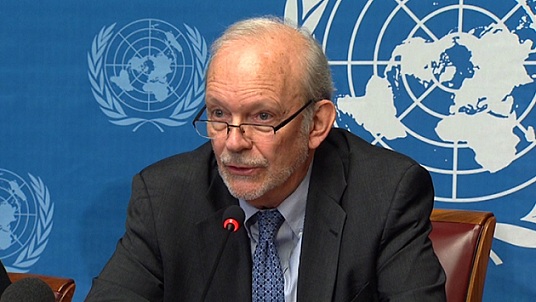The United Nations Children’s Fund (UNICEF) says states in the South-South geo-political zone still have major challenges in water coverage, sanitation, immunisation coverage, reducing malnutrition and stunted growth among children.

The fund highlighted these challenges at the annual review meeting of Rivers Field Office of UNICEF held in Yenagoa, Bayelsa State on Friday, November 24, 2017.
Mr Wilbroad Ngambi, the Chief of field office, UNICEF Rivers Field Office, said the problems were as a result of difficult terrains, inadequate budget by states and frequent strikes in the area.
He said others problems included delay in release of counterpart funding, the lack of political will as major restraints affecting UNICEF and its state’s partners from covering the states under review.
He added that out of the states under Rivers Field office, Akwa Ibom had an alarming level of stunted growth in children under five years.
He noted that “I think the South-South still has major challenges in water coverage, sanitation, immunisation coverage, reducing malnutrition and stunt growth.
“Some of the states like Akwa Ibom have stunted growth level for under five children as high as 29 per cent, as 30 children out of 100 are stunted; that is why they are shorter than their age.
“We acknowledged that the state has done a lot of work to improve the situation but more work remains undone both in nutrition, water and sanitation, even in maternal child health.”
Ngambi said the review meeting was an annual gathering the states of Akwa Ibom, Bayelsa, Rivers and Delta to take stock of what had been done for women and children in the South South of the country in the year 2017.
He said “we have programmes for immunisation, nutrition, promotion of exclusive breast feeding for children, improving infants and young child feeding, addressing malnutrition and stunting.
“We also have programmes for water sanitation and hygiene, where state governments support UNICEF to construct water and sanitation facilities, expected to reach more than 150,000 people.”
By Nathan Nwakamma
